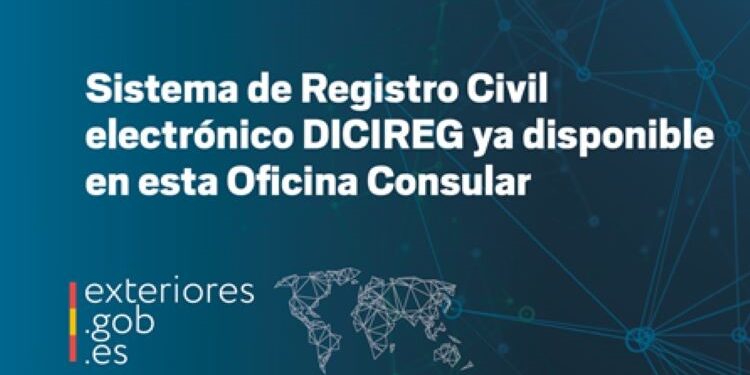The Diplomat
The Government has already deployed the new digital platform for the Civil Registry, DICIREG, in 35 Consular Offices, which allows it to provide services to nearly one million Spaniards living abroad.
According to a press release issued by the Ministry of Foreign Affairs on Monday, the implementation of DICIREG abroad, which is taking place in parallel to its deployment in Spain, is being developed progressively in close coordination with the Ministry of the Presidency, Justice and Relations with the Courts.
The deployment abroad began last July in the Spanish Consular Offices in Helsinki, Manchester and Amman and is scheduled to end in mid-2025 throughout the entire Spanish consular network. Today, 35 Consular Offices in Western Europe and Morocco already operate in DICIREG. This deployment coincides with the Consular Digitalisation Plan (PDC) of the Ministry of Foreign Affairs, which is currently being developed and which aims to offer more and better digital services to Spaniards who are abroad.
DICIREG, the digital platform adapted to the new Civil Registry model provided for in the Civil Registry Law of 2011, is a comprehensive application in which both the processing of files and the subsequent registration of events is carried out electronically. It is also based on an individual registry, through which each person is identified by their personal code, which attests to the facts and acts of their civil status, ordered chronologically and systematically.
The advantages of implementing DICIREG in Consular Offices, according to Foreign Affairs, are “numerous for Spanish citizens abroad”, since it allows them to obtain any certificate from the civil registry electronically without having to travel to the Consular Offices, sometimes far from the place of residence.
Furthermore, by organising the publication of registration information in digital format, online access to the registry is made possible for citizens through their electronic identification. All of this promotes immediacy and legal security, since the certificates are transmitted immediately and, by being issued digitally with a Secure Verification Code (CSV), their authenticity is guaranteed.
“In this entire process of implementing DICIREG, the Consular Offices are playing a key role in providing information and support to Spanish citizens living abroad by disseminating the implementation through their websites and social networks,” the Ministry stated.
“DICIREG, together with the implementation of the Consular Digitalisation Plan, will contribute to a new relationship between Spanish citizens abroad and their corresponding Consular Offices, characterised by electronic accessibility and by more agile and simplified processing,” it concluded.







